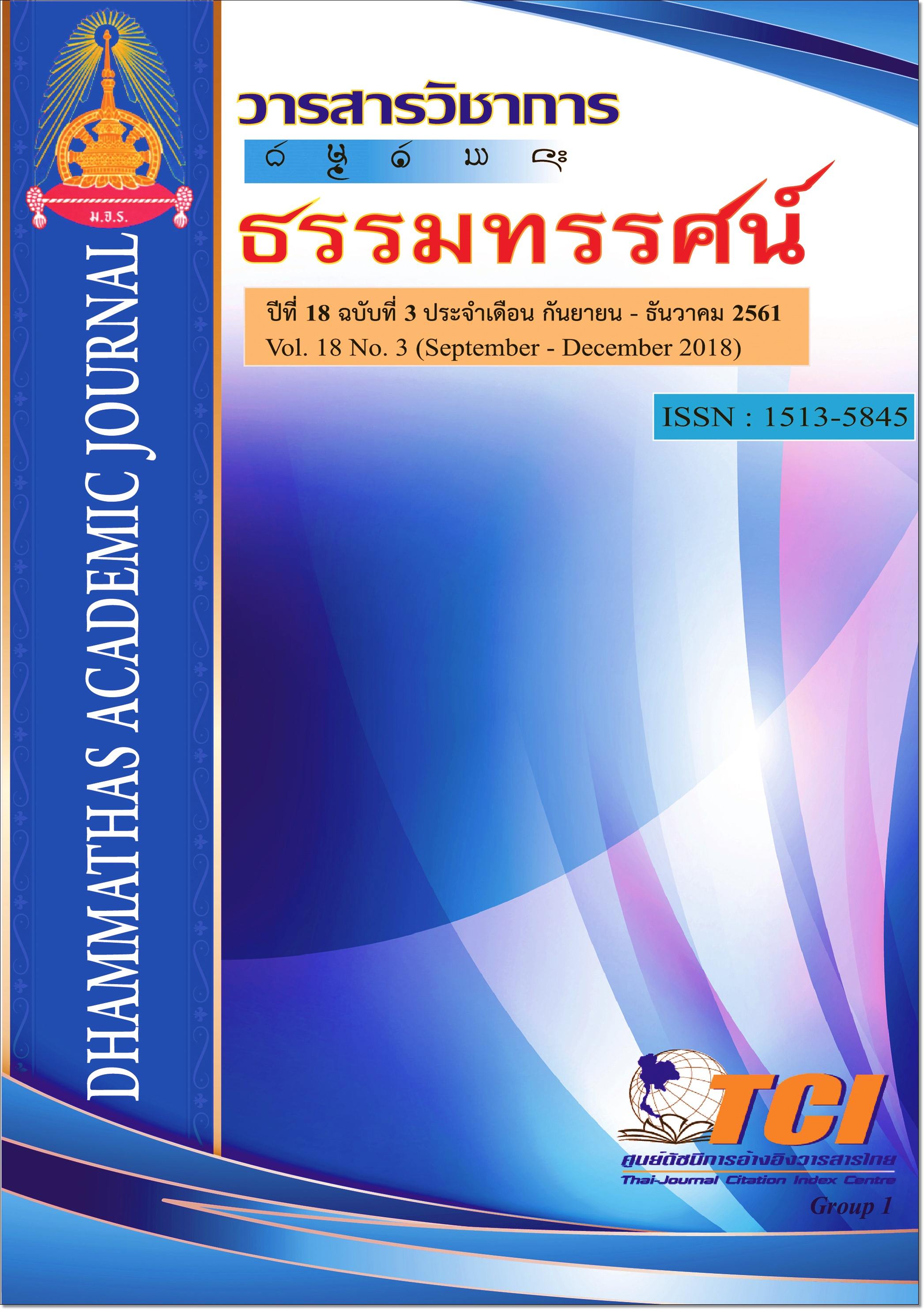The Buddhist Socialization of Tai-Yai (Shan) in Mae Hong Son Province
Main Article Content
Abstract
This research aims to 1) study western and Buddhism socialization concepts, 2) study ways of life, identity and society of Shan people in Mae Hong Son province, and 3) to analyze the Buddhist socialization of Shan people in Mae Hong Son province.
The finding revealed that: western concept of socialization is the process of internalizing the norms and ideologies of the society through generations. The process starts from individual, family, members of society and social institutes in order to form an ideal society. The Buddhist concept of socialization is the process of physical, verbal, and mental self-purification using the threefold training so as to create a perfect life and peaceful society. According to the way of life, identity, and society, Shan people live very simple and sufficient lives. They live in a big and cooperative family. They believe in Buddhism. They believe that the village guardian spirit (Phii Chao Muang) has the power to create positive and negative impact to community. Therefore, Phii Chao Muang worshiping ceremony must be held annually to ask for protection and prosperity to the society. Besides, Tai-Yai people have strong faith in Buddhism that can be seen through their twelve-month ceremonies or ‘YahSee Sib Song’. The process of Buddhism socialization can be categorized into three aspects; 1) Shan people are living in accordance with the principles of Buddhism 2) Shan people focus on a proper management of family and society. They believe that a well-managed and conducted family creates stronger, prosper, and sustainable society, and 3) an ideal life under the principle of Buddhism is the purpose of Shan people. They aim for happy, simple, healthy, and prosperity family and society. Additionally, they aim for the better positions in the next life which are reaching nirvana for Monks and heaven for layman.

